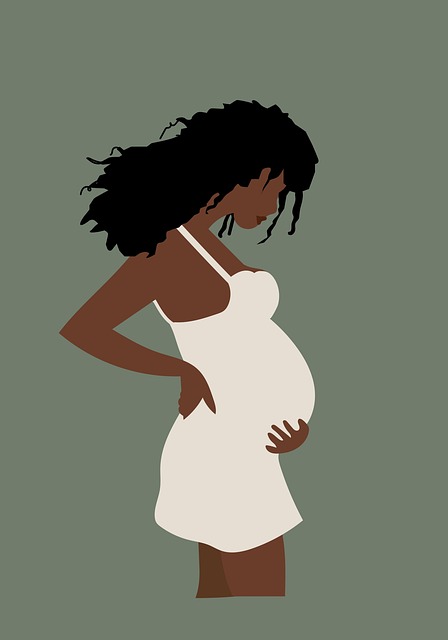Hey there! If you’ve just been diagnosed with PCOS or are trying to figure out what the symptoms mean for your journey to parenthood, you’re not alone. It’s totally normal to ask, “What is PCOS? How will it impact my ability to get pregnant?” Polycystic Ovary Syndrome (PCOS) affects around 1 in 10 individuals with ovaries of reproductive age and is one of the leading causes of infertility. But don’t worry—having PCOS doesn’t mean you can’t get pregnant naturally; you might just need a bit of extra help and support along the way.
So, what exactly is PCOS? It’s a hormonal disorder that can throw your body out of whack, leading to irregular periods, ovarian cysts, and challenges with ovulation. This difficulty in ovulating is often what makes conception tricky. In this post, we’ll break down the essentials about PCOS and fertility, explore natural ways to enhance your fertility, and discuss medical treatments available for those trying to conceive.
What Is PCOS?
PCOS is a complicated hormonal condition that impacts the ovaries and comes with a range of symptoms like irregular menstrual cycles, weight gain, and sometimes excessive hair growth. It can emerge anytime after puberty, but it’s frequently diagnosed when someone is looking into fertility issues, especially in their 20s and 30s. Because of the hormonal imbalance, ovulation can become irregular or even cease altogether, meaning the ovaries aren’t releasing eggs as they should. This is a significant reason why people with PCOS may struggle to conceive—without regular ovulation, there aren’t any eggs available for fertilization.
Common Symptoms of PCOS
Many symptoms can indicate PCOS, including:
- Irregular menstrual cycles (fewer than eight periods a year, or cycles that are more than 21 days apart)
- Hirsutism (unwanted hair growth on the face, chin, or body)
- Acne, particularly on the face, chest, and back
- Thinning hair on the scalp
- Weight gain or difficulty losing weight
- Dark patches of skin in areas like the neck and groin
How Is PCOS Diagnosed?
Getting diagnosed with PCOS usually involves meeting at least two out of the three criteria: irregular periods, elevated androgen levels (like excess hair growth), and ovarian cysts identified through ultrasound. It’s super important to consult a healthcare provider for an accurate diagnosis and to discuss your treatment options.
Here’s what the diagnosis process generally looks like:
- Medical History: Your doctor will ask about your menstrual cycles, any weight changes, and other symptoms you might have, like acne or hair growth issues. They’ll also check for any history of conditions like diabetes or sleep apnea.
- Physical Examination: A check-up to look for signs of PCOS, such as skin changes or excessive hair growth.
- Laboratory Tests: Blood tests to measure hormone levels and potentially an ultrasound to check for ovarian cysts.
Can You Get Pregnant with PCOS?
Now, here’s the silver lining: Yes, you can still get pregnant with PCOS! While it may pose challenges, many individuals with PCOS do conceive successfully. Some will benefit from medical treatments, like ovulation induction, which helps stimulate the ovaries to release eggs. This can be a game-changer, whether you’re trying timed intercourse methods, clinic procedures like IUI, or even home insemination options.
Natural Ways to Improve Fertility with PCOS
If you’re looking for natural ways to enhance your fertility, there are some excellent strategies to consider. Regular exercise and losing just 5-10% of your body weight can help regulate your cycles and improve insulin sensitivity, which is often an issue for those with PCOS. A balanced diet and lifestyle changes can also make a big difference in managing symptoms and boosting your overall health.
Medical Treatments for PCOS and Infertility
When it comes to medical treatments, they can vary based on individual circumstances. Lifestyle changes, nutritional adjustments, and medications like Clomiphene can help induce ovulation. Assisted reproductive technologies, such as IUI and IVF, are also viable options for those dealing with infertility. If you’re curious about these options, chatting with your healthcare provider is the best way to start.
Coping with PCOS and Infertility
Navigating PCOS and infertility can be emotionally taxing, so don’t hesitate to seek support. Whether it’s joining a support group or talking to a counselor, having a network can help alleviate the stress associated with the journey.
Conclusion
PCOS is a common, yet complex hormonal disorder that can impact fertility, often diagnosed in your 20s and 30s when you’re actively seeking to conceive. There are many treatments and resources available to support you on your journey to parenthood. Remember, while PCOS makes it a bit more challenging to conceive, natural methods like exercise and diet changes can help, and medical interventions are available as well. For more information, check out our article on coping strategies and treatments for those with PCOS and infertility.
So, if you’re feeling overwhelmed, just know you’re not alone. Reach out for support and keep pushing forward; you’ve got this!

